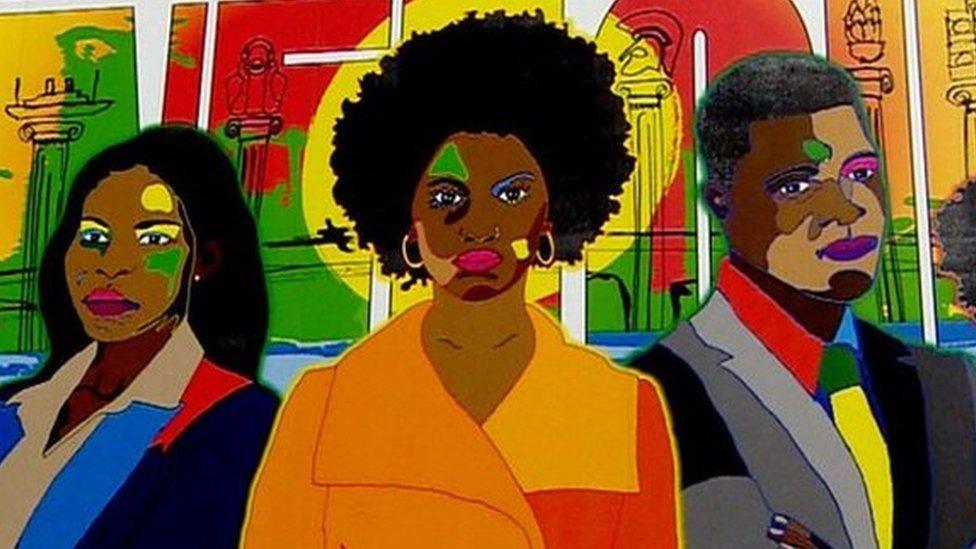'The only black history taught at school was slavery'
- Published
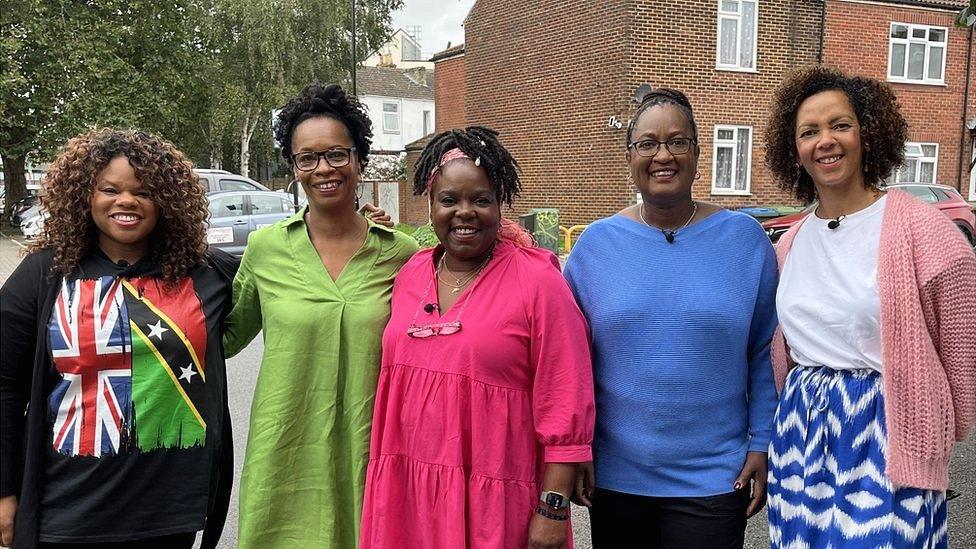
Traci, Carolyn, Jude, Pat and Gina are all children of the Windrush generation
Five women who are children of the Windrush generation have been sharing their experiences growing up together.
Brought up in Newtown, Southampton, a location where many people from the West Indies first settled, the women formed a friendship group at a young age.
They are first-generation British and are so inseparable they have given themselves a collective nickname - The Sistars.
The friends have told their stories as part of Black History Month, this year's theme - Saluting our Sisters - highlights the role that black women have played in shaping history.
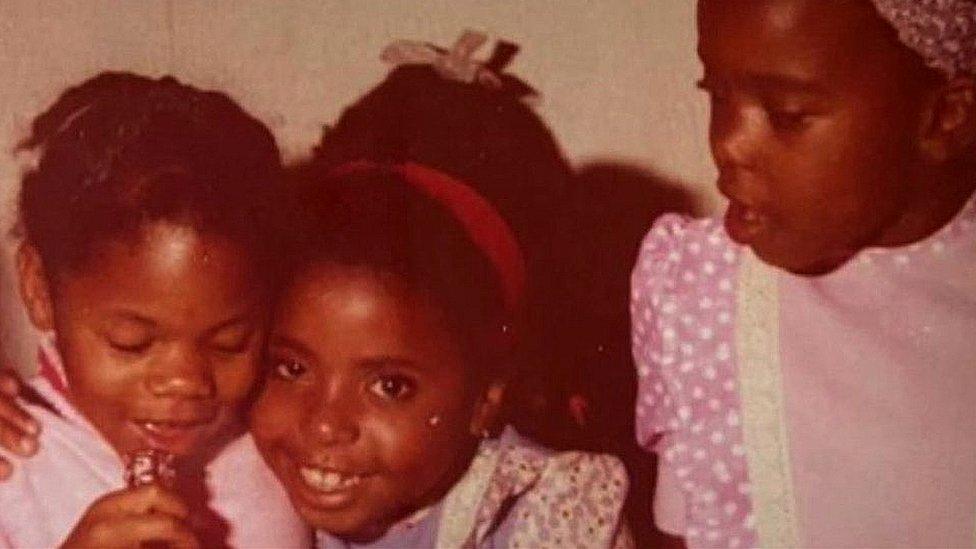
The women met as children and grew up together in Southampton, Hampshire
Traci Carroll said, as children, they bonded over their similarities.
"Our parents came from the West Indies, they became friends, and through them, we became friends - and that keeps our bond really really strong," she said.
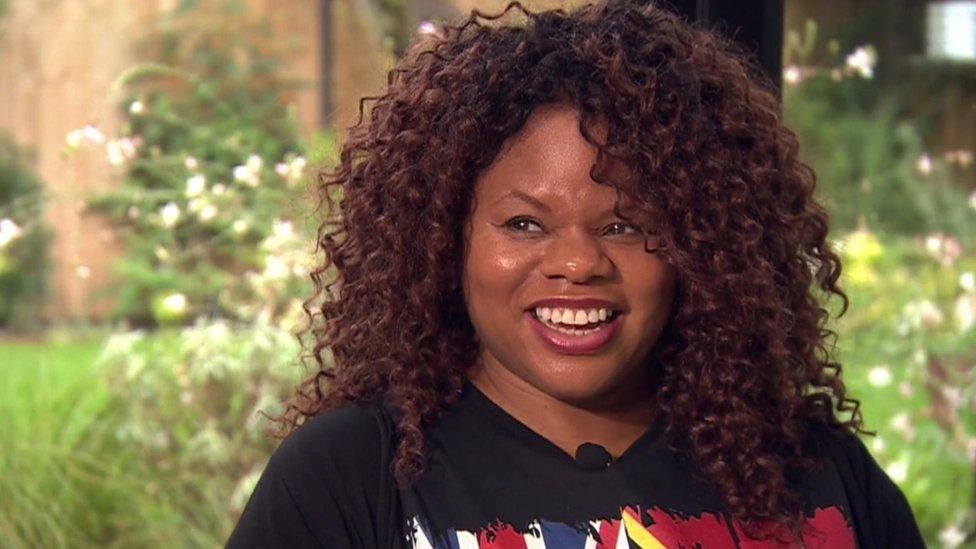
Ms Carroll's mother was born in Curacao, while her father came to Southampton from Nevis
The 53-year-old said the group quickly became close-knit and "like sisters".
She said: "We could have swapped as children and lived with any of each other's families and we would have just be able to slot in."
The group lived in a tight community in Southampton, in which they felt safe and secure.
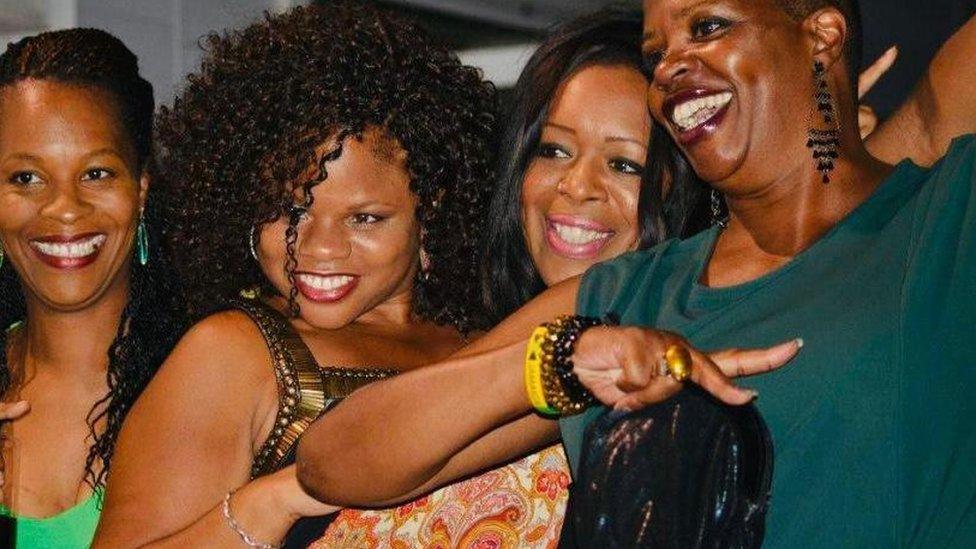
The women have been friends for decades and have enjoyed many nights out together
Jude Adams later moved out of Newtown and to another area of the city, where she was met with some hostility.
Ms Adams said children would put their heads over the garden wall and taunt her with racial slurs.
"They'd ask: 'Do you eat with knives and forks?'," she said.
And that was not the only kind of ignorance the women said they experienced.
The 56-year-old said the only black history that was taught at her school was related to slavery, which made her feel like that was the only legacy her ancestors had.
"But there's a lot more to us - black people have invented things, and that wasn't mentioned during our school life at all," Ms Adams said.
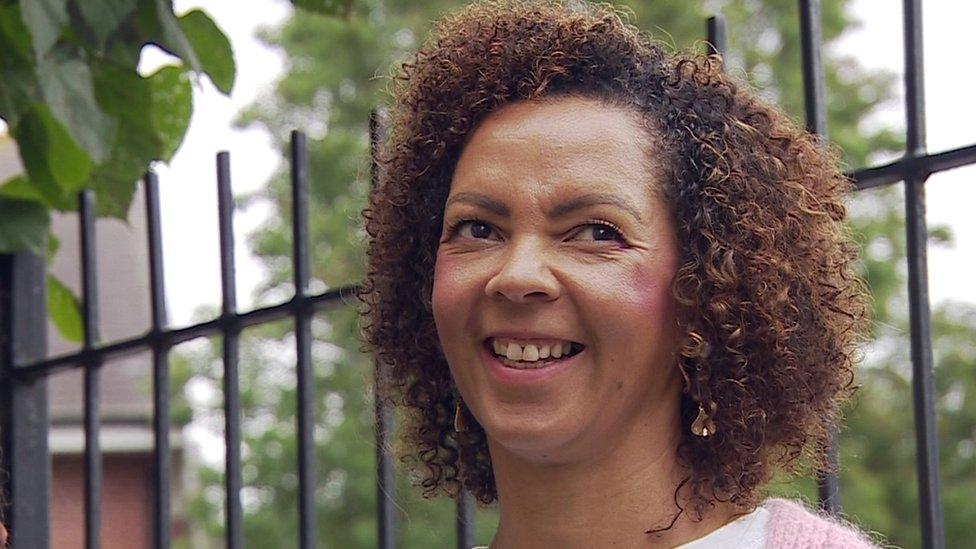
Ms Rae's father came to England from Trinidad, where he met her mother who was from Manchester
October marks Black History Month in the UK. It celebrates the contribution to British society of people from African and Caribbean backgrounds, which campaigners believe have often been overlooked.
The UK's first Black History Month took place in 1987, the 150th anniversary of the abolition of slavery in the Caribbean.
The youngest of the Sistars, Gina Rae, agreed that there needed to be a particular time to celebrate the heritage of black people.
The 46-year-old said: "There needs to be a specific month because it isn't embedded in education and history."
Ms Rae has fond memories of growing up in Southampton, particularly spending time with her family on the Common.
"I think the Common has always been such a special place for me, I remember coming here to the funfair."
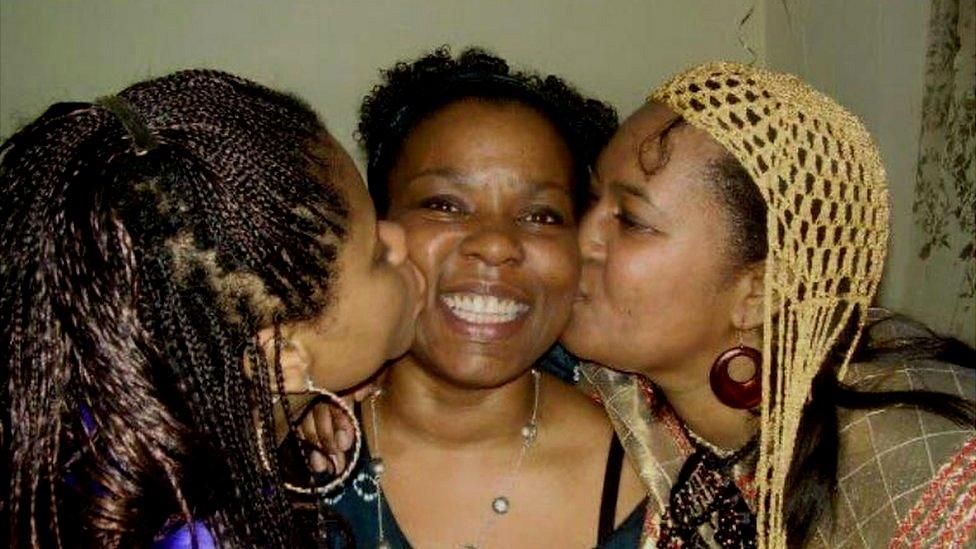
Some of the friends find comfort in walking together every weekend
Southampton Common remains a special place for the friendship group, especially for 53-year-old Pat Larmond, who has regularly walked around the area with Ms Adams for more than 20 years.
She said: "We call it our 'walk and talk' - it's our therapy session on a Saturday morning."
Ms Larmond said her parents had left a lot of family behind when they travelled to England from Jamaica.
"You had to find a new family, which is why you call everybody uncle and auntie."
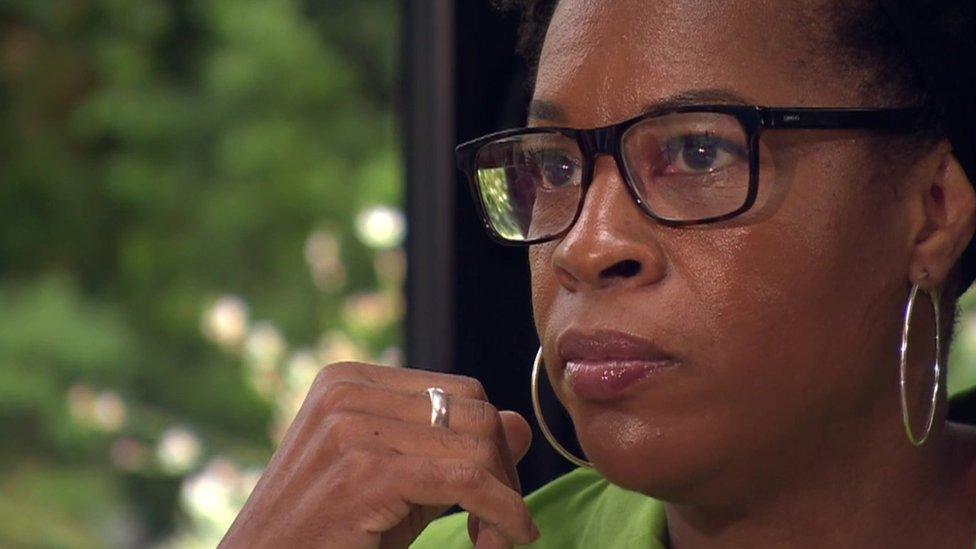
Also part of the Windrush generation were Ms Small's parents, who travelled from Montego Bay, Jamaica
Black History Month gives everyone the opportunity to share, celebrate and understand the impact of black heritage and culture.
But Carolyn Small said one of the most frequent questions she is still asked, as a black woman, is 'where are you from?'
"When you say you're from England, they go 'But where are you really from?'," she said.
"I think it is good that we have started to introduce [black history] into schools now because it wasn't really there at all," the 53-year-old added.
This October, people are being encouraged to find out more about the exceptional achievements of black women, especially those who have been forgotten.
For these women, one exceptional achievement they have shared is finding each other.

Follow BBC South on Facebook, external, Twitter, external, or Instagram, external. Send your story ideas to south.newsonline@bbc.co.uk, external.
Related topics
- Published3 October 2023
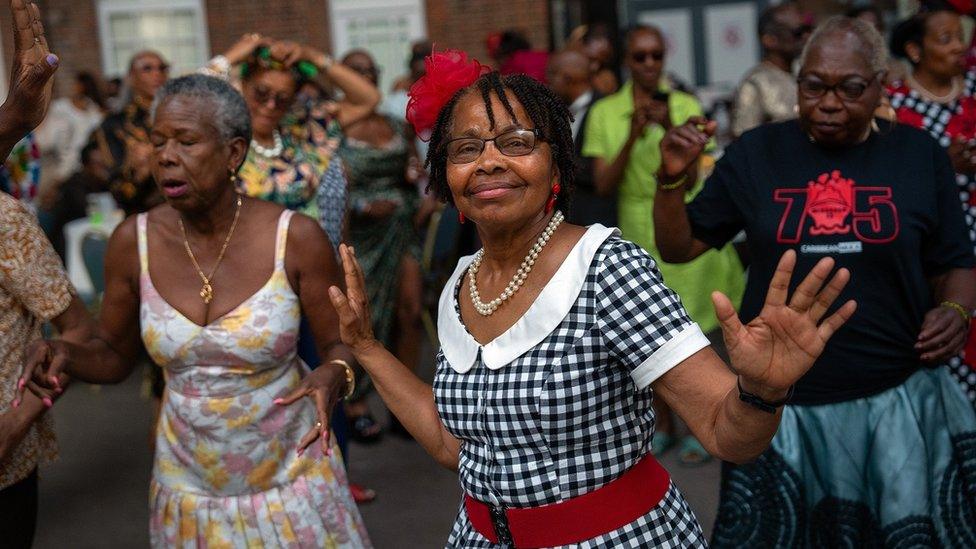
- Published8 October 2023
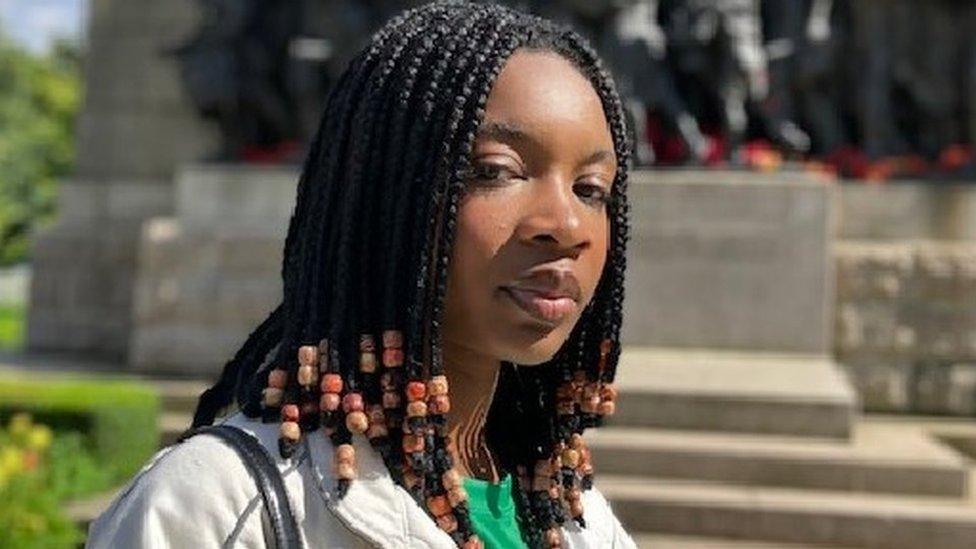
- Published2 October 2023
